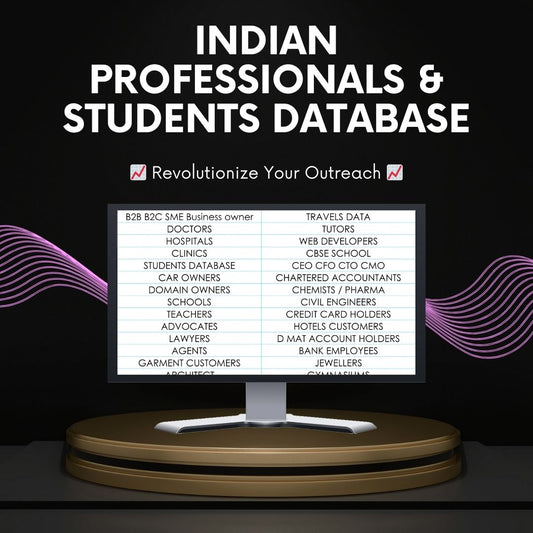Understanding SEO: What It Is and How It Works
Share
Search Engine Optimization (SEO) is a term that gets thrown around a lot, but what does it really mean? In this blog post, we will dive deep into the concept of SEO, explaining its components, importance, and how it can be effectively utilized to enhance online visibility.
What is SEO?
SEO stands for "Search Engine Optimization." At its core, SEO is about optimizing your website in such a way that it ranks higher in search engine results. This means that when people search for something related to your business, your website appears at the top of the results. To achieve this, we need to understand two key components: search engines and optimization.
Understanding Search Engines
A search engine is a software system designed to search for information on the World Wide Web. With millions of websites and vast amounts of data available online, search engines help users find the information they need efficiently. Popular search engines include Google, Bing, and Yahoo.
The Concept of Optimization
Optimization refers to the process of making something as effective or functional as possible. In the context of SEO, it means using search engines to your advantage by ensuring your website is easily discoverable by users searching for related products or services.
Why is SEO Important?
SEO is essential for businesses looking to enhance their online presence. Here are a few reasons why SEO matters:
- Increased Visibility: Higher rankings in search results lead to more visibility, which can translate to increased traffic to your website.
- Better User Experience: SEO involves optimizing your website's structure and content, which can enhance user experience.
- Cost-Effective Marketing: Unlike paid advertising, SEO is a long-term strategy that can yield sustainable results without ongoing costs.
- Builds Credibility: Websites that rank higher are often perceived as more credible and trustworthy by users.
How Does SEO Work?
To effectively optimize your website for search engines, it’s important to understand how they work. Search engines use algorithms to determine the relevance and quality of web pages. Here are the main factors that influence SEO:
Keywords
Keywords are the terms and phrases users type into search engines. Identifying the right keywords and incorporating them into your website’s content is crucial for ranking well in search results.
On-Page SEO
On-page SEO refers to the practices you implement on your website to improve its ranking. This includes optimizing content, meta tags, images, and URLs. Some key practices include:
- Optimizing Title Tags: Include relevant keywords in your title tags to help search engines understand your content.
- Creating Quality Content: High-quality, informative content that answers users' questions can improve engagement and rankings.
- Using Header Tags: Properly utilizing header tags (H1, H2, etc.) can help structure your content for both users and search engines.
- Image Optimization: Use descriptive file names and alt tags for images to improve visibility in search results.
Off-Page SEO
Off-page SEO refers to actions taken outside of your own website to impact your rankings. This mostly revolves around building backlinks—links from other websites that point to your site. Quality backlinks can enhance your site's credibility and authority in the eyes of search engines.
Technical SEO
Technical SEO involves optimizing the infrastructure of your website. This includes improving site speed, mobile-friendliness, and ensuring that search engines can crawl and index your site effectively. Key components of technical SEO include:
- Site Speed: A fast-loading website improves user experience and can reduce bounce rates.
- Mobile Optimization: With the increase in mobile device usage, having a mobile-friendly website is crucial for SEO.
- Secure Website: Websites that use HTTPS are considered more secure, which can positively impact rankings.
SEO Strategies for Success
Now that we understand what SEO is and how it works, let's explore some effective strategies to improve your SEO efforts:
1. Conduct Keyword Research
Finding the right keywords is essential. Use tools like Google Keyword Planner, SEMrush, or Ahrefs to identify keywords that are relevant to your business and have a good search volume.
2. Optimize Your Website Content
Incorporate your target keywords naturally into your website's content. Ensure that your content is informative, engaging, and answers the questions that users are searching for.
3. Build Quality Backlinks
Focus on acquiring backlinks from reputable websites in your industry. This can be done through guest blogging, collaborations, or creating shareable content that others want to link to.
4. Monitor and Analyze Your SEO Performance
Use tools like Google Analytics and Google Search Console to monitor your website's performance. Track metrics such as organic traffic, bounce rates, and keyword rankings to identify areas for improvement.
Conclusion
SEO is a powerful tool for enhancing your online visibility and driving traffic to your website. By understanding the fundamentals of SEO and implementing effective strategies, you can increase your chances of ranking higher in search engine results, ultimately growing your business. Stay updated with SEO trends and continuously optimize your website to achieve long-term success.
Thank you for reading! If you found this information helpful, don't forget to share it with others who may benefit.



